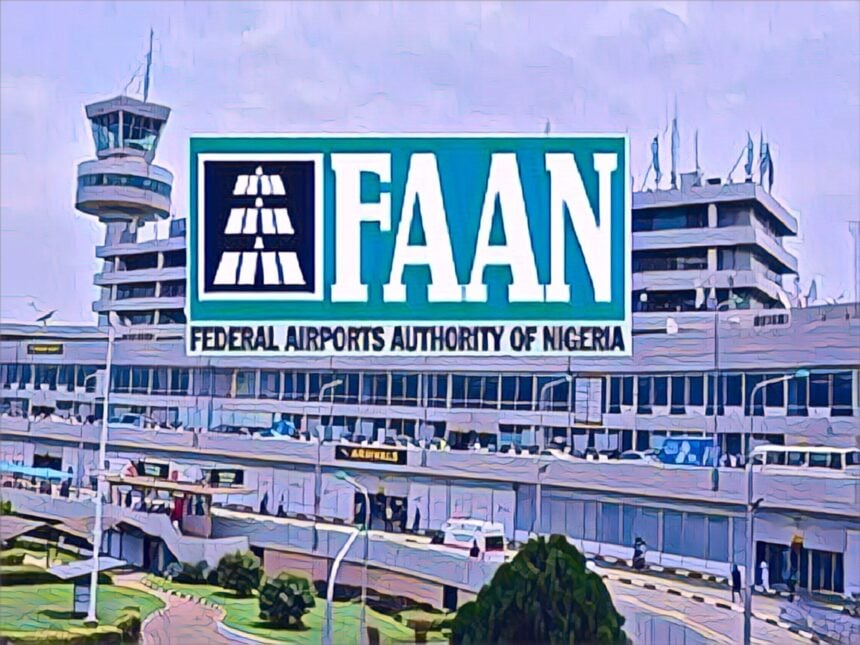The Nigerian aviation industry is facing a growing concern that threatens the safety and efficiency of its operations: wildlife hazards.
Bird strikes and other wildlife-related incidents have become a significant threat to aviation safety, resulting in substantial financial losses and disruptions to airline operations.
ALSO READ: Flights disrupted as Air Peace plane kills antelope on Abuja airport runway
Recently, an Air Peace aircraft collided with an antelope at the Nnamdi Azikiwe International Airport in Abuja, resulting in flight disruptions.
The incident, which decimated the animal, left the aircraft grounded, and scheduled flights were disrupted.
According to the Nigerian Civil Aviation Authority (NCAA), such unforeseen occurrences are part of the challenges that lead to flight disruptions.
The NCAA’s Director of Public Affairs & Consumer Protection, Mr. Michael Achimugu, explained that while the incident was beyond the airline’s control, Air Peace is still obligated to inform passengers, provide refunds, and extend necessary care.
This incident highlights the broader issue of wildlife hazards in Nigerian aviation.
Bird strikes, in particular, have become a significant concern.
According to the Federal Airports Authority of Nigeria (FAAN), over 93 bird strike incidents were recorded in the first half of 2022, with the Murtala Muhammed Airport in Lagos being a high-risk area.
Between 2015 and 2020, FAAN reported 134 bird strike incidents across the country with significant impact on airline operations
According to the Airline Operators of Nigeria (AON), Nigerian airlines lose over N20 billion annually to bird strikes.
In 2021, Air Peace alone suffered 14 bird strikes, which affected its engines, while in 2022, the airline experienced four bird strike incidents.
The cost of replacing an aircraft engine can range from $1.5 million to N547.5 million, depending on the type and capacity of the aircraft.
To mitigate the menace, FAAN said it has acquired “Phonic Bird Wailers” to combat wildlife and bird strikes and received wildlife hazard control equipment from the International Civil Aviation Organisation (ICAO) to enhance safety.
FAAN’s Managing Director, Olubunmi Kuku, believes these measures will drastically improve safety at Nigerian airports and increase the country’s rating in ICAO.
The NCAA has also expressed concern over the high incidence of bird strikes and is working with stakeholders to find a lasting solution.
The agency emphasizes that keeping the airspace safe from bird strike incidents is a collective responsibility of all stakeholders, including airline operators, security agencies, and FAAN.
Experts say that Nigerian airports need to adopt international best practices in bird strike prevention, including effective wildlife management and habitat control.
Some airports, like Singapore Changi Airport, have implemented measures such as broadcasting bird distress calls and installing anti-perching devices on railings near runways and taxiways.
In Nigeria, stakeholders are calling for improved collaboration and investment in bird strike prevention measures.
Retired Group Captain John Ojikutu, an Aviation Security Consultant, believes that the country’s aviation industry needs a more comprehensive approach to addressing bird strikes, including training and capacity-building for airport staff and stakeholders.
“As the aviation industry continues to grapple with the challenges of bird strikes and wildlife hazards, it is clear that a multi-faceted approach is needed to mitigate the menace.
” With the right measures in place, Nigerian airports can reduce the incidence of bird strikes and ensure safer skies for passengers and crew,” Ojikutu stressed.
The recent antelope strike incident, according to Bode Oluwafemi, an environmentalist, serves as a reminder of the importance of addressing wildlife hazards in aviation and the need for stakeholders to work together to find solutions.
“By prioritising safety and investing in wildlife hazard prevention measures, Nigeria’s aviation industry can minimize disruptions and ensure the well-being of passengers and crew,” Oluwafemi said.






